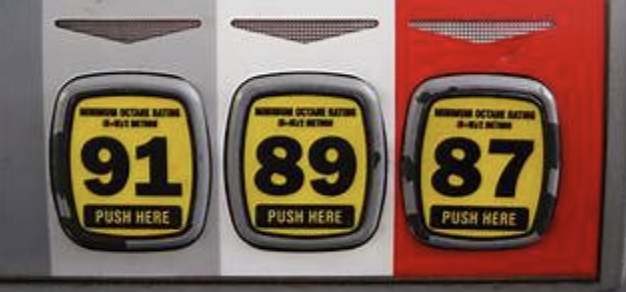
Is higher octane worth using in my car?
I have a friend who always puts the highest grade of fuel in his car. He says that it runs better on higher octane. That got me thinking, is it worth it to put the higher octane in my car? Is higher octane better for my car? I do know a little bit about how an engine works but I researched it further to find the answer.
So should I use higher octane fuel in my car? Well that depends on if your car requires it. The higher the number octane the more the fuel is capable of being compressed in an engine and the higher the performance. Now just because a fuel is capable of being compressed more does not mean your engine is capable of compressing it to its potential. That is why each engine is rated to use a certain octane level. It is only capable of compressing the fuel to a point that it is recommended. So your engine is not actually able to utilize the higher potential of the higher grade of octane.
My friend puts higher octane in his vehicles no matter what the vehicle requires. Now there is nothing wrong with that. It definitely will not harm your engine. My friends even claim it improves their performance over lower grade fuels. You can make up your mind if you think higher octane is worth spending your money on.
I have an Acura that requires higher octane, 91 or higher. I use higher octane in it because lower octanes could damage the engine. The reason is that higher octanes are able to be compressed more than lower octanes. Higher performance engines require higher octanes. My Acura is kind of sporty and my wife loves driving it because it is fast and responsive. The number representing the grade of fuel or octane is a representation of how much that fuel is capable of being compressed before it spontaneously combusts. What does that mean: to spontaneously combust, in this application, means the point at which a fuel can be compressed that it will ignite on its own. High performance engines generally compress the air and fuel in a cylinder more than “normal engine” or an engine in a lower grade or more economical car. A high performance engine does not mean it is not economical it usually means that it has tighter tolerances and more expensive materials which generally leads to a more costly engine to build. Now back to octane, the problem with lower octanes is that they will generally spontaneously combust before the piston fully compresses the air and fuel in the cylinder. This will greatly reduce the efficiency of your engine and will most likely cause what is called knocking in your engine. This can also cause damage to the engine because it is in essence fighting itself during certain portions of the pistons stroke. That is why you are able to put a higher octane than what is required in your vehicle. If the fuel is not compressed to its full potential it will still ignite when the spark plug fires off. It just costs more for that higher octane. So the best grade of fuel to use in your vehicle is the one recomended by the manufacturer. Anything higher is ok but generally just wasting money. If your car requires an octane of 87 then use 87 or higher. If 87 is not available then this is a time I would definitely recommend utilizing a higher octane. This is when higher octane is not a waste because if you were to use a lower octane you could cause damage or unnecessary wear to your engine.
